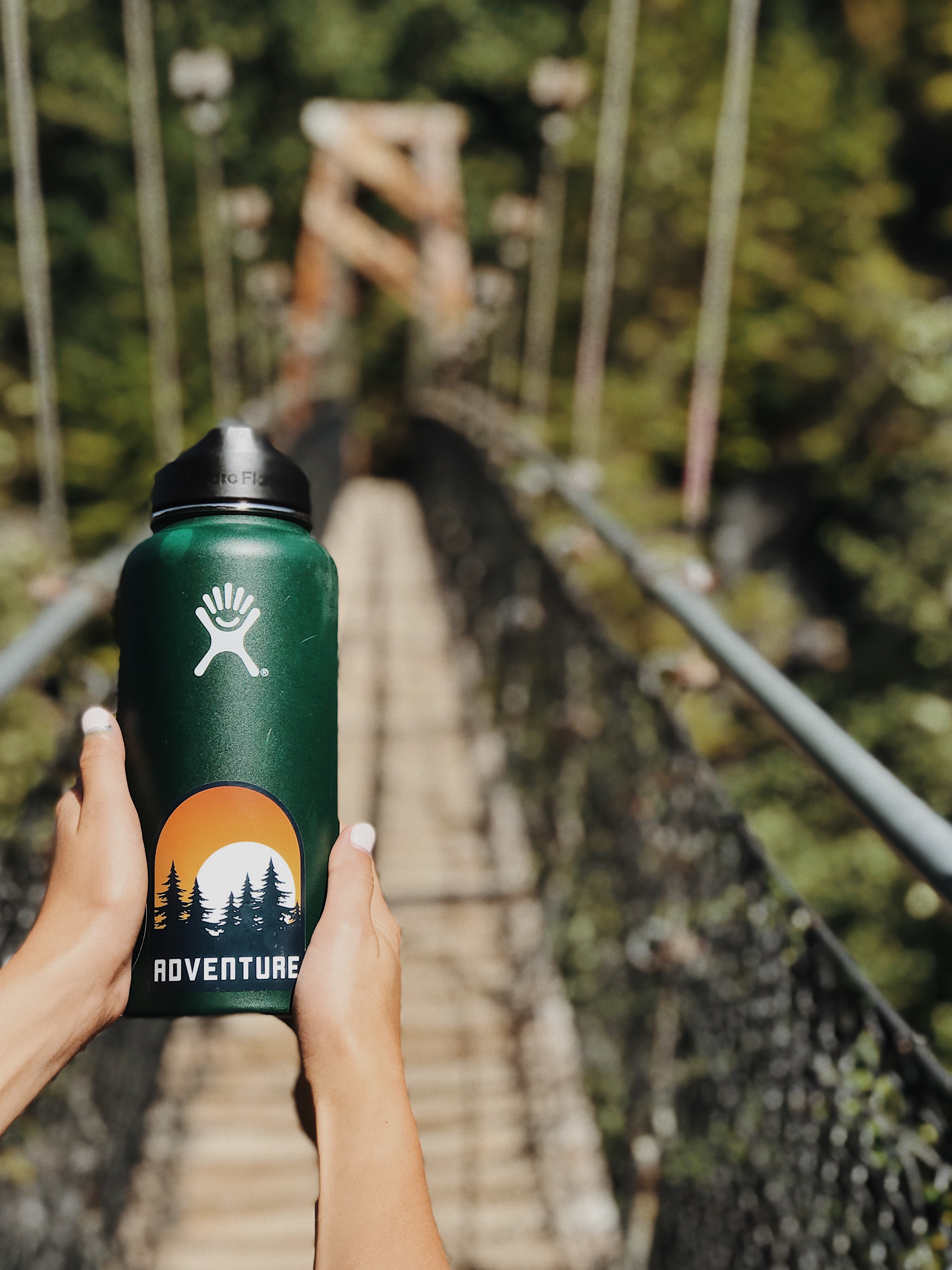
Whether your just working out or training for a race or just living, hydration is a big part of our daily activities to stay healthy. If you’re living and exercising some, drinking water all day every day is the way to go, but some people need a little more detail to get motivated or to support their goals. You can drink to thirst, but sometimes we get thirst and hunger signals mixed up. If you’re a chronic under drinker, set your target to .5-1 ounce per pound of body weight per day.
For example: If you’re a 135 pound woman aim for .5 x 135 = 72.5 ounces to 135 ounces per day. More if its hot, humid and you’re sweating through out the day. Less if it’s dry and cool. Yes, that’s a lot more than eight glasses a day, but we actually need a lot more than that – especially in the summer. If you’re drinking enough water, you’ll need to go to the restroom every couple of hours and your pee will be nearly clear.
Technically, any liquids contribute to your water consumption throughout the day. This includes sparkling water, coffee and tea too, but the coffee and tea are more likely to have caffeine, sweeteners or worse in them that may have other side effects.
The benefits of proper hydration include:
- Improved cellular health and metabolism
- Less likely to confuse hunger with thirst, so you actually consume fewer calories
- Improved GI regularity and kidney function
If you’re exercising regularly or training, you need to drink even more.
- For workouts less than an hour, water or an electrolyte-only drink like Nuun tablets or water with a pinch of Himalayan salt are fine for hydration.
- For workouts longer than an hour, or when you are starting them already calorie depleted for the day, drink at least one bottle of electrolyte fluid per hour.
Electrolyte drinks are preferred over straight water because the fastest way to get fluids from your mouth through your small intestine and into your blood stream is if water is paired with sodium and simple sugars – like dextrose or sucrose. What you’re looking for to achieve optimal hydration, based on what we know today is: 7-9.4g of glucose & sucrose, sodium 180-225mg and 60-75mg of potassium per serving. Drinks like Skratch Hydration, Nuun Perfomance and Clif Shot all meet this criteria.
According to exercise physiologist and hydration specialist Stacy Sims, here’s a formula to calculate even more precisely what your fluid needs are per hour based on your body weight:
- Low-end ounces to drink per hour while training = body weight * .1
- High-end ounces to drink per hour while training = body weight * 1.13
Also be aware that not all electrolyte drinks are equal. Their number one job is to hydrate you, but many try to make them all-in-one fuel sources, which increases the likelihood of GI distress. Some also have some rather nasty fillers and dyes that may not agree with you either. Read your labels and go for ingredients that are as simple as possible. Unless you’re training for something longer than two hours, you rarely need extra calories for your workout and instead need to focus on staying hydrated. There are also other ways to get in those calories. Dehydration can kill a long workout much faster than lack of calories.
Electrolyte drinks that try to be your all in one hydration (watch for calories in excess of 80 per serving) plus provide extra calories frequently slam your system with too much sugar. They may add maltodextrin and fructose to them, which require additional water and time to breakdown, so they can also pull water into your GI system instead of pushing the fluids through to your blood stream. This can lead to that sloshing you feel in your stomach or nausea when you’ve over consumed fluids, whether it’s an electrolyte drink or straight water. Women especially are more vulnerable to GI distress, so any of these drinks should be heavily tested in training before incorporating them into your race day strategy.
Ultimately determining what works best for you and fits your tastes will require experimentation under race conditions. If it’s a 10K or less you can get away with a little salt and water on the course, but any races longer than that should get much more attention. What we’ve outlined is an approach that generally works for most healthy adults.
Still confused? Keep it simple:
- Drink water all day every day and keep it handy.
- Working out for an hour? Just add some salt to your water or a Nuun tablet and call it good.
- Training and building up for a long race? Aim for 12-20 ounces of an electrolyte drink like Skratch, Nuun Performance or Clif.
Doing a race longer than two hours? You will need to take into account what fueling will work best with your hydration strategy. This is especially significant for marathon, ultras, Half-Ironman and Ironman-distance races and typically needs to be tailored in detail for the individual athlete. If you want to discuss what would work best for your body and your goals, we should talk. Schedule a 15-minute introduction call to discuss how we can help (You may need to cut and paste the link into your browser: https://calendly.com/focusedfit/introduction).





